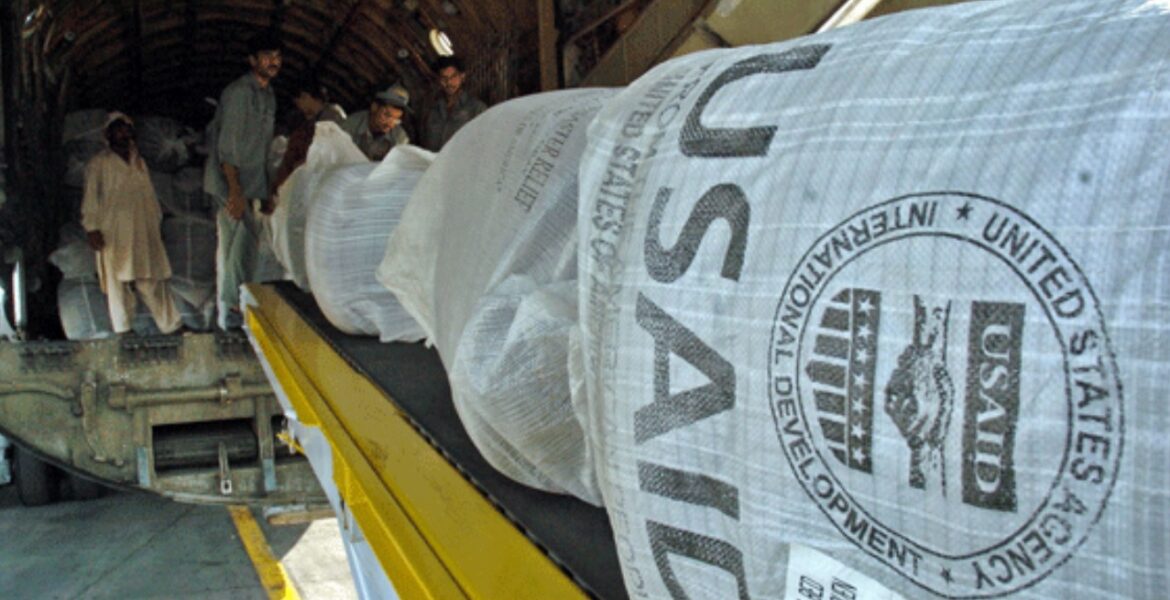In July 2023, after its worst-ever crisis, IMF credited Pakistan’s economy with yet another aid of $3 billion, making it the fourth heavily indebted nation by the Fund. Given the scenario, experts fear that the band-aid solution will only provide short-term relief to the economy unless large-scale reforms are implemented. On the one hand, policy pundits and academicians have been beating the drums in unison, lamenting the inefficacy of foreign aid to Pakistan for over a decade. On the other hand, its leaders have been actively soliciting and lobbying to receive their regular aid.
The empirical evidence suggests that foreign aid doesn’t always induce economic growth in developing countries like Pakistan. As per a study, better quality institutions and economic freedom are necessary to reap the full benefits of foreign aid; otherwise, it becomes detrimental to the nation’s economic growth.
Thus, nations with better rankings on governance and economic freedom indicators can effectively utilise financial aid for their growth. However, Pakistan’s recent scoring on the economic freedom index has been below the required threshold to facilitate aid-induced development. Moreover, the nation has been ranked among the lowest for its institutional quality, with high corruption index scores.
Another study published in the Pakistan Development Review provides strong evidence against the effectiveness of foreign aid in Pakistan. Despite being a recipient of foreign aid since independence, evidence suggests that foreign aid has not contributed to the growth of Pakistan’s economy for decades.
This level of ineffectiveness is unique to the case of countries like Pakistan. Researchers have found that for countries marked by instability and authoritarian regimes that lack well-functioning democracy, like Pakistan, foreign aid reaps no benefits. Moreover, foreign aid paralyses Pakistan’s ability to adopt sound and sustainable economic policies. Thus, given the mounting empirical evidence, it can be conclusively said that foreign aid is detrimental to Pakistan’s economic growth and domestic savings.
Several interlinked factors related to political orientation, societal motivation, and economic policies have punctured the ability of foreign aid to do its job in Pakistan. First, historically, much of the aid from the US was devoted to expanding Pakistan’s military capacity rather than focusing on developing civilian facilities like building schools, roads, or medical facilities.
Though the USA,
through its financial aid, aimed to create an ally in its war against terrorism; as it turned out, Pakistan’s military and its intelligence agency emerged as significant supporters of terrorist groups in places like Afghanistan, disrupting regional peace and stability. Despite the KerryLugar-Berman Act of 2009 by the US under Obama’s regime, which focused on development aid, the act could not accomplish much in developing educational, health, and other infrastructure.
Second, there needs to be more transparency on foreign aid spending in Pakistan. Aid often needs to be more efficiently allocated to the public sector and diverted to non-developmental projects.
Third, excess and prolonged dependence on foreign aid has created a ‘moral hazard’ situation for the Pakistani economy. There exists a perverse incentive for the government and the citizens alike. The government has no real incentive to ensure growth through sustainable economic policies and programs. The readily available aid has not given enough opportunity to the government to take charge, sit together, and effectively solve the issues at hand instead of seeking quick-fix solutions through foreign funds. Similarly, foreign aid has handicapped the entrepreneur class by destroying motivation, the spirit of working hard, and the culture of risk-taking and
innovation in society.
This is evident from the low rankings in ease of doing business in Pakistan. Unnecessary government intervention and excessive regulations, corruption, and instability, which are part of the system, need to provide more space for entrepreneurs to lobby for a better business ecosystem. Thus, the regular shots of foreign aid promote aid addiction, stunting the growth of its institutions and entrepreneurial culture.
The institutions have never dealt with challenges on their own; hence, they haven’t matured even after three-quarters of a century.
Fourth, Pakistan’s economy needs to re-orient itself, focusing on bolstering domestic investment, FDI, exports, and political stability to attain economic autonomy. However, given the excessive aid dependence and the current financial crisis, these goals seem further to be achieved.
Finally, aid dependence comes with its vices in the form of the conditions laid down by the donors. This further removes the government's autonomy and provides them lesser leg space to target long-term growth plans per the economy's needs. In July 2023, Pakistan committed to the IMF a $3 billion loan to hike tax rates, cut spending, and raise interest rates to 22 per cent. Rising taxes and shot-up interest rates might be the last nail in the coffin, given Pakistan's regressive tax regime and staggering entrepreneurial class.
Moreover, given the IMF's strict austerity requirements, the economy's frail condition may further deteriorate.
To conclude, an economics professor from Johns Hopkins University said, “Pakistan has been living beyond its means by borrowing from bilateral lenders and multinational institutions… all this borrowing has done Pakistan little good.”
Despite being one of the largest aid recipients, Pakistan has not seen the expected socio-economic development as evident from its poor socioeconomic indices like the HDI score or gender gap index. If the country lacks essential preconditions like fiscal prudence, sound institutions, a stable government, and a democratic apparatus characterised by accountability and transparency, foreign aid would be irrelevant to its growth.
Thus, Pakistan’s challenge is not to muster as much international aid as possible but to build a robust economy with a strong base free from elite capture, corruption, military intervention, and political instability. The precariousness of its political will and stability has rendered its economy in the abyss of crisis and excessive civilian hardships.
Unless structural change is brought in, foreign aid is not a blessing for Pakistan.
READ MORE: Israeli Prime Minister Benjamin Netanyahu vows to change the Middle East.


